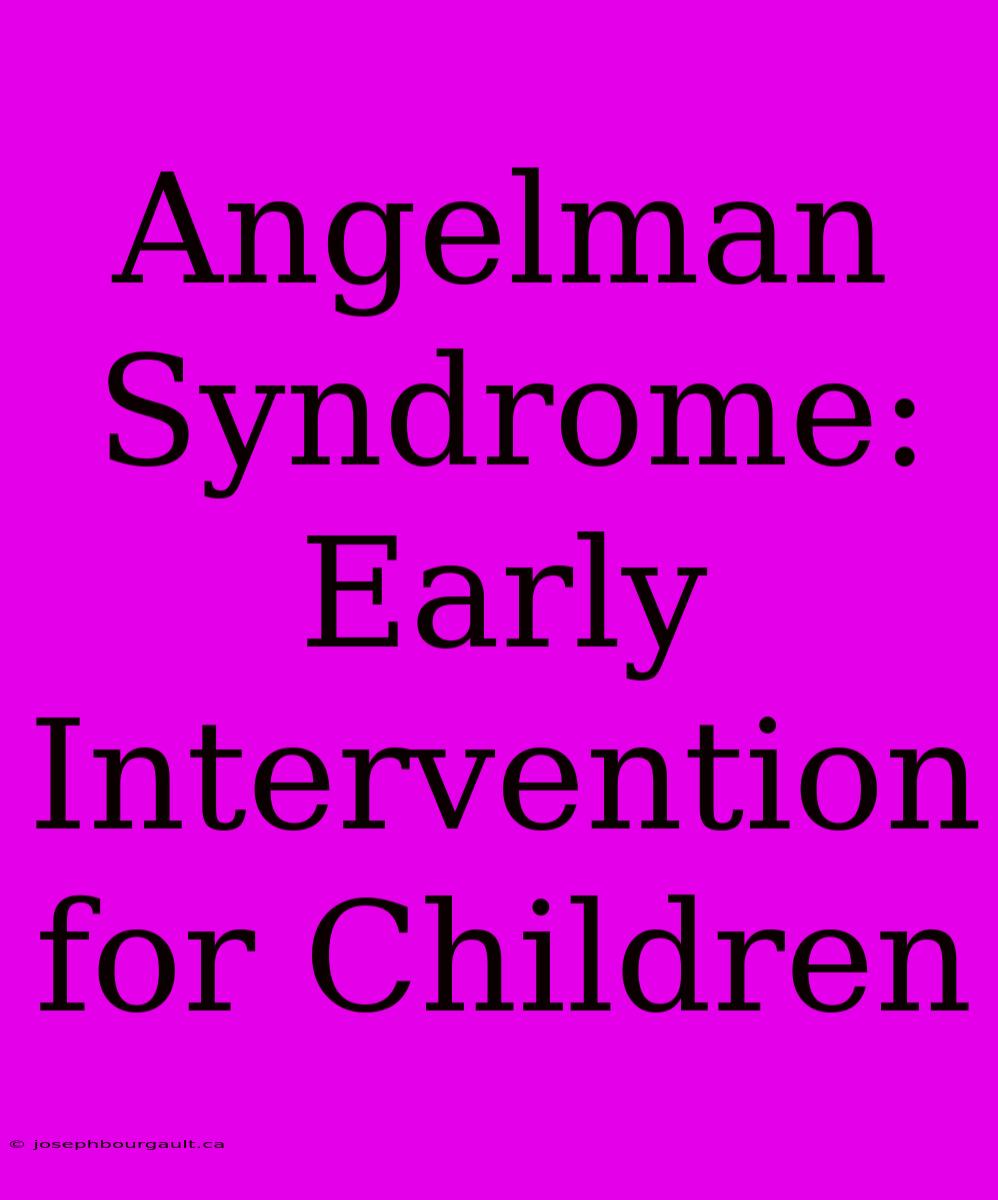Angelman Syndrome: Early Intervention for Children
Angelman syndrome is a rare neurodevelopmental disorder that affects a child's ability to learn, move, and communicate. It is caused by a genetic mutation on chromosome 15, and often results in a range of developmental delays, challenges, and distinctive physical characteristics. While there is no cure for Angelman syndrome, early intervention programs can significantly improve the quality of life for children with this disorder.
Understanding the Importance of Early Intervention
Early intervention is crucial for children with Angelman syndrome because it aims to maximize their developmental potential and support their overall well-being. It is based on the principle that the brain is most receptive to learning and development during the early years of life. By starting early, children with Angelman syndrome can benefit from therapies that help them achieve their milestones, learn valuable skills, and build independence.
Key Components of Early Intervention Programs
1. Physical Therapy: Physical therapy addresses motor challenges like balance, coordination, and mobility. Therapists work on strengthening muscles, improving gross motor skills, and developing adaptive techniques for daily tasks.
2. Occupational Therapy: This therapy focuses on improving fine motor skills, self-care abilities, and daily living activities. Occupational therapists may help with hand-eye coordination, feeding, dressing, and play skills.
3. Speech Therapy: Speech and language therapy is essential for children with Angelman syndrome who often face delays in communication. Therapists work on developing language skills, improving verbal expression, and augmenting communication methods like sign language or picture exchange systems.
4. Behavioral Therapy: This type of therapy addresses challenging behaviors often associated with Angelman syndrome. It involves creating positive behavior support plans, teaching social skills, and managing anxiety or frustration.
5. Educational Therapy: Educational interventions are tailored to the child's individual learning needs and provide specialized support for cognitive development. This may involve assistive technology, visual aids, and personalized learning strategies.
Benefits of Early Intervention for Children with Angelman Syndrome
Early intervention offers numerous benefits for children with Angelman syndrome:
- Improved Motor Skills: Children may develop better balance, coordination, and mobility, leading to greater independence in daily activities.
- Enhanced Communication: Therapy can improve language skills, verbal expression, and communication methods, fostering better social interactions.
- Reduced Behavioral Challenges: Behavioral interventions can help manage challenging behaviors, improve social skills, and create a more harmonious environment.
- Increased Cognitive Development: Educational therapy promotes cognitive growth, learning abilities, and independent thinking.
- Improved Quality of Life: Early intervention can significantly improve the child's overall quality of life by addressing their individual needs and maximizing their potential.
Finding the Right Intervention Program
1. Diagnosis: The first step is to receive a diagnosis from a qualified medical professional, which will allow you to access specialized services.
2. Individualized Evaluation: A comprehensive evaluation is needed to assess the child's specific needs and strengths.
3. Early Intervention Services: Look for qualified professionals who specialize in Angelman syndrome and offer comprehensive therapy programs.
4. Family Support: Early intervention is not just for the child but also for the family. Seek out support groups and resources for caregivers to manage stress and access information.
Conclusion
Early intervention is crucial for children with Angelman syndrome as it significantly impacts their development, well-being, and overall quality of life. By starting early and providing tailored interventions, families can help their children reach their full potential and live fulfilling lives.

